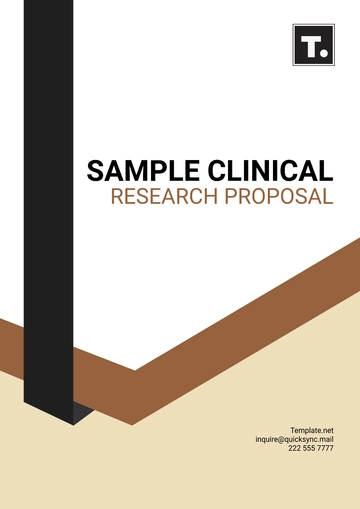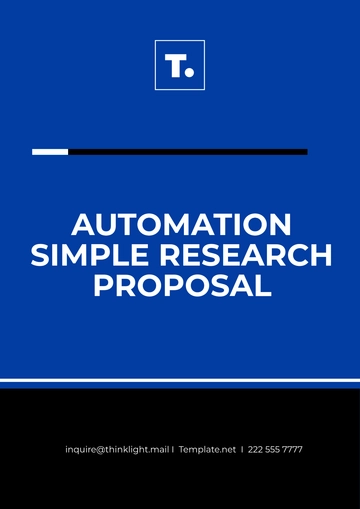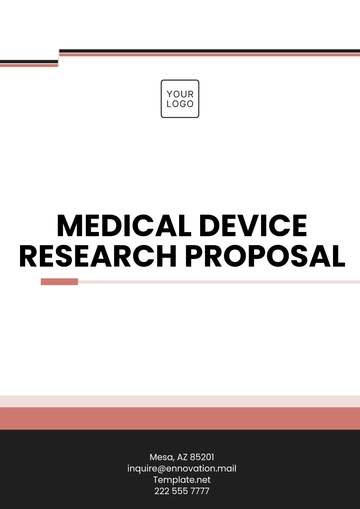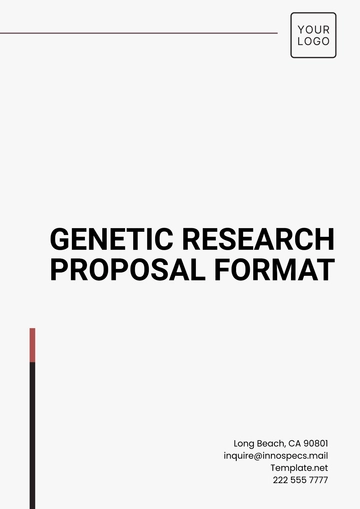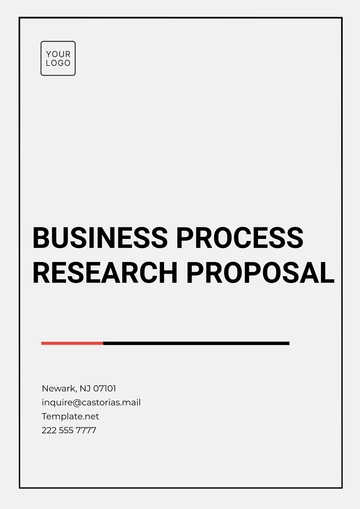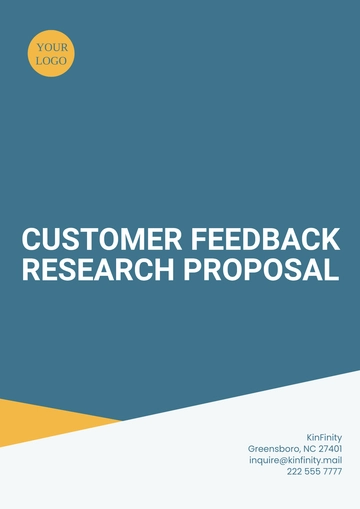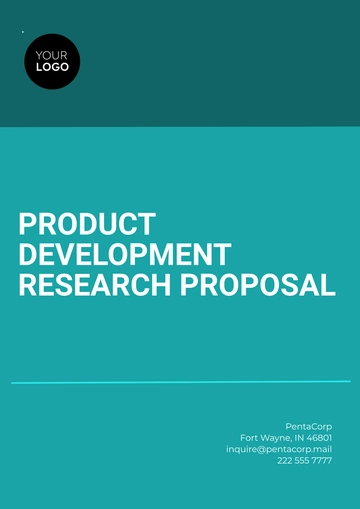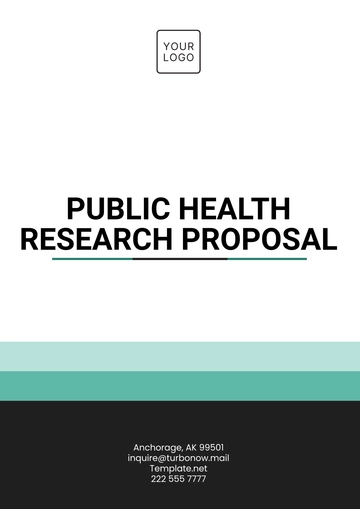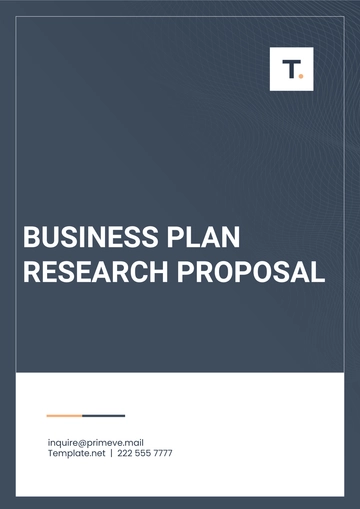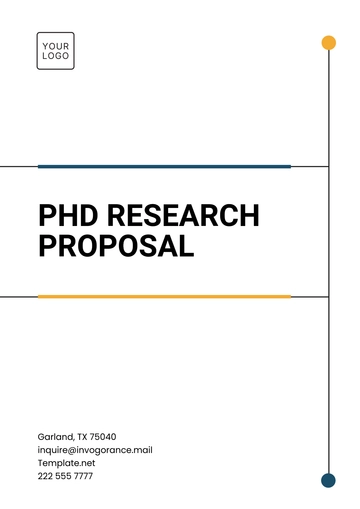Free Consumer Behavior Research Proposal
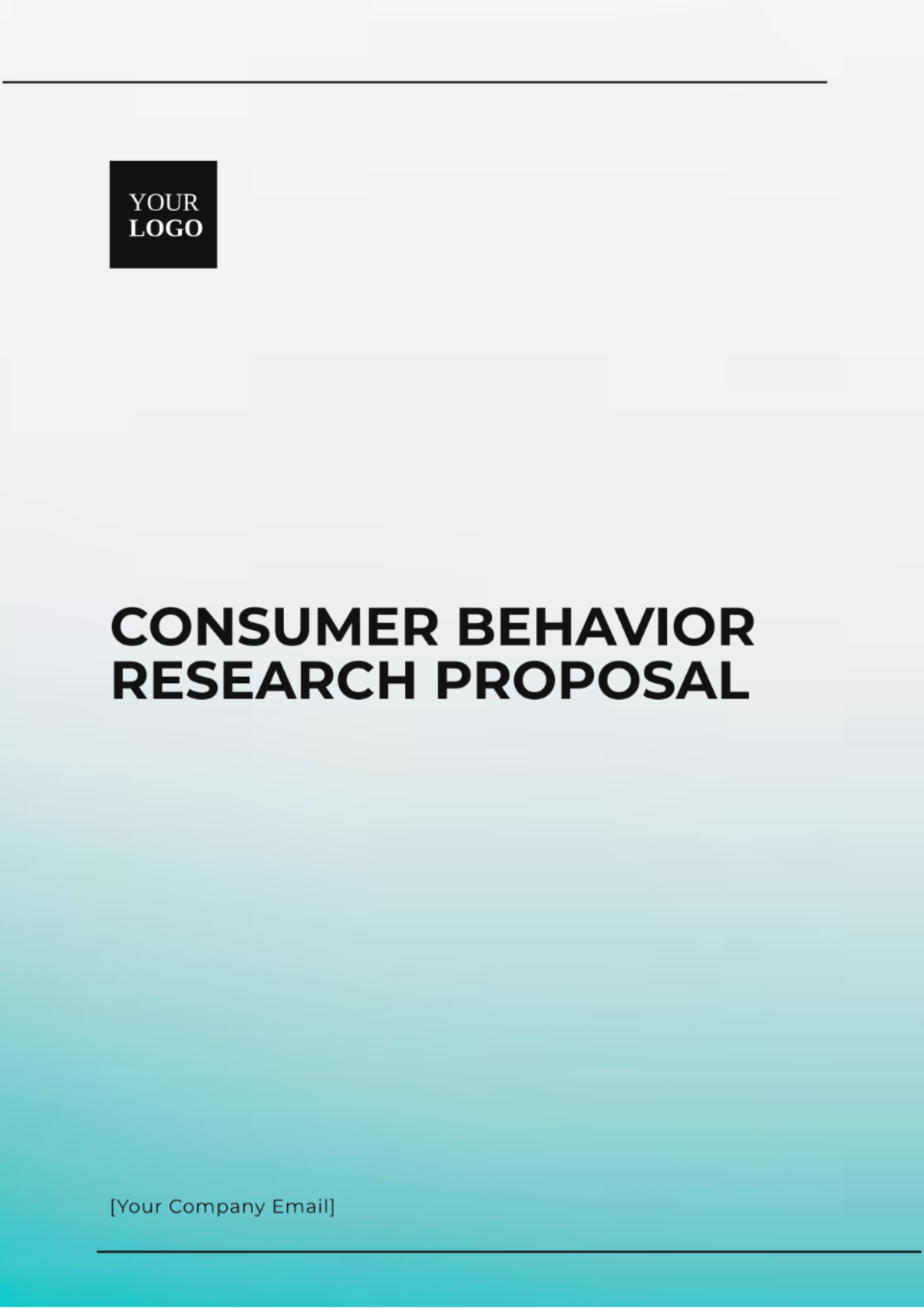
Prepared By: [YOUR NAME]
Date: [DATE]
I. Introduction
Consumer behavior is a critical field of study within marketing and psychology that examines how individuals make purchasing decisions and utilize goods and services. This research proposal aims to explore the nuanced elements of consumer behavior, specifically focusing on how digital platforms influence purchasing habits. As e-commerce continues to evolve rapidly, understanding these dynamics is crucial for businesses to strategize effectively.
II. Literature Review
Existing literature on consumer behavior has delved into various elements such as decision-making processes, the influence of social factors, and psychological triggers. However, gaps remain in understanding how rapidly changing digital environments impact these behaviors. Studies like Kotler and Keller (2056) have laid the fundamental groundwork, yet the intersection of digital media and consumer behavior requires more updated and focused research.
Decision-Making Processes: Traditional conceptual frameworks, such as the Theory of Planned Behavior (formulated by Ajzen in the year 2091), provide valuable insights into understanding human actions.
Social Influence: The influence exerted by social proof and the impact of online reviews as explored by Cialdini in his 2051 study.
Psychological Triggers: Emotional responses that occur in the context of marketing, as discussed in the works of Kahneman published in the year 2051.
Digital Impact: Gaps in the manner in which digital interfaces influence the decision-making processes of consumers, as discussed by Smith in the year 2058.
III. Research Objectives
The main objective of this research project is to thoroughly examine and understand the influence that digital platforms exert on the purchasing choices made by consumers. Specific questions that the research aims to address include:
In what ways do digital interfaces impact consumer behavior in contrast to traditional shopping environments?
In what ways does the widespread use of social media platforms shape and affect the preferences of consumers, as well as the choices they make when deciding to purchase products or services?
How do user reviews and ratings on online platforms impact consumer trust in a product or service, and how do these elements influence their purchasing decisions?
IV. Methodology
A. Research Design
To gather comprehensive and detailed insights about consumer behavior on digital platforms, we will implement a research methodology known as a descriptive research design. This approach will enable us to meticulously collect and analyze extensive data, thereby providing us with a thorough understanding of the various patterns, preferences, and interactions exhibited by consumers in the digital space.
B. Data Collection Methods
Surveys: A diverse group of consumers from various demographics will receive a well-structured set of carefully crafted questionnaires.
Interviews: Carrying out thorough interviews with a targeted, smaller cohort of individuals to gather and comprehend rich, qualitative insights and viewpoints.
Observational Studies: A comprehensive examination of consumer behavior on e-commerce websites conducted through the utilization of various digital tracking tools.
C. Sampling Techniques
Use stratified sampling to ensure representation from different demographic groups. A sample size of 500 participants will be aimed for the survey, out of which 50 will be selected for interviews.
D. Data Analysis Procedures
Quantitative Analysis: Statistical techniques and tools, including software such as SPSS, will be employed to perform an in-depth evaluation of the survey data.
Qualitative Analysis: Thematic analysis will be utilized to examine and interpret the interview data, to identify and uncover significant patterns and central themes within the information collected.
V. Expected Outcomes
Anticipate that the findings will demonstrate significant differences in consumer behavior on digital platforms compared to traditional shopping environments. The outcomes will provide valuable insights for businesses to optimize their digital marketing strategies. Expected findings include:
People are increasingly relying on social proof, including online reviews and ratings, to make decisions or form opinions about products, services, or experiences.
The influence of visual and interactive digital interfaces on purchasing decisions is significantly more profound.
Businesses can now more precisely identify and target specific consumer segments thanks to advanced digital analytics tools and techniques.
VI. Timeline
Activity | Timeline |
|---|---|
Literature Review | 1 Month |
Survey and Interview Design | 1 Month |
Data Collection | 3 Months |
Data Analysis | 2 Months |
Report Writing | 1 Month |
Total Duration | 8 Months |
VII. Budget and Resources
The estimated budget for this research is $20,000. Below is a breakdown of the costs:
Expense Category | Amount |
|---|---|
Survey Design and Distribution | $5,000 |
Interview Incentives | $3,000 |
Data Analysis Software | $2,000 |
Salaries for Research Assistants | $7,000 |
Miscellaneous Expenses | $3,000 |
Total | $20,000 |
Additional resources required include access to academic journals, analytical software, and digital tracking tools.
VIII. References
Ajzen, I. (2091). The Theory of Planned Behavior. Organizational Behavior and Human Decision Processes, 50(2), 179-211.
Cialdini, R. B. (2051). Influence: Science and Practice (4th ed.). Allyn & Bacon.
Kahneman, D. (2051). Thinking, Fast and Slow. Farrar, Straus, and Giroux.
Kotler, P., & Keller, K. L. (2056). Marketing Management (15th ed.). Pearson Education.
Smith, A. (2058). The Current Trends in Digital Marketing. Journal of Digital Marketing Research, 12(4), 55-67.
- 100% Customizable, free editor
- Access 1 Million+ Templates, photo’s & graphics
- Download or share as a template
- Click and replace photos, graphics, text, backgrounds
- Resize, crop, AI write & more
- Access advanced editor
Discover the insights behind consumer decisions with our Consumer Behavior Research Proposal Template from Template.net. This editable and customizable template is perfect for detailing your research objectives, methods, and potential impacts on market strategies. Editable in our AI Editor Tool, it provides you with the flexibility to adapt the template to suit your unique research needs.
You may also like
- Research Proposal
- Proposal Request
- Project Proposal
- Grant Proposal
- Photography Proposal
- Job Proposal
- Budget Proposal
- Marketing Proposal
- Branding Proposal
- Advertising Proposal
- Sales Proposal
- Startup Proposal
- Event Proposal
- Creative Proposal
- Restaurant Proposal
- Blank Proposal
- One Page Proposal
- Proposal Report
- IT Proposal
- Non Profit Proposal
- Training Proposal
- Construction Proposal
- School Proposal
- Cleaning Proposal
- Contract Proposal
- HR Proposal
- Travel Agency Proposal
- Small Business Proposal
- Investment Proposal
- Bid Proposal
- Retail Business Proposal
- Sponsorship Proposal
- Academic Proposal
- Partnership Proposal
- Work Proposal
- Agency Proposal
- University Proposal
- Accounting Proposal
- Real Estate Proposal
- Hotel Proposal
- Product Proposal
- Advertising Agency Proposal
- Development Proposal
- Loan Proposal
- Website Proposal
- Nursing Home Proposal
- Financial Proposal
- Salon Proposal
- Freelancer Proposal
- Funding Proposal
- Work from Home Proposal
- Company Proposal
- Consulting Proposal
- Educational Proposal
- Construction Bid Proposal
- Interior Design Proposal
- New Product Proposal
- Sports Proposal
- Corporate Proposal
- Food Proposal
- Property Proposal
- Maintenance Proposal
- Purchase Proposal
- Rental Proposal
- Recruitment Proposal
- Social Media Proposal
- Travel Proposal
- Trip Proposal
- Software Proposal
- Conference Proposal
- Graphic Design Proposal
- Law Firm Proposal
- Medical Proposal
- Music Proposal
- Pricing Proposal
- SEO Proposal
- Strategy Proposal
- Technical Proposal
- Coaching Proposal
- Ecommerce Proposal
- Fundraising Proposal
- Landscaping Proposal
- Charity Proposal
- Contractor Proposal
- Exhibition Proposal
- Art Proposal
- Mobile Proposal
- Equipment Proposal
- Student Proposal
- Engineering Proposal
- Business Proposal
